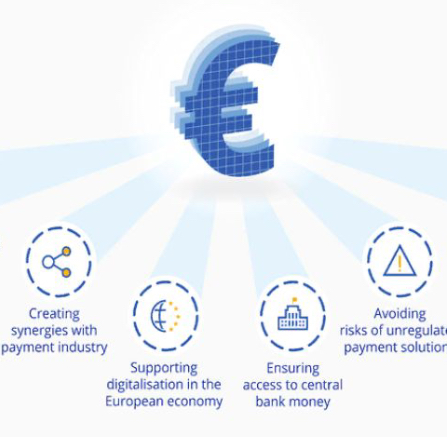Fabio Panetta, a member of the ECB’s executive board, suggested a three- to four-year schedule for the rollout of the digital euro on the occasion of the institution’s 25th anniversary.
In a conversation with Les Echos, Panetta said that fifty individuals are now engaged in the effort to create a digital equivalent of the euro. These people “are researching the architecture of the digital euro, its dissemination, and its implications for the financial industry.”
Additionally, the Governing Council will begin the central bank digital currency (CBDC) test phase in June of this year once they have finished creating a legislative proposal.
A member of the executive board of the bank reportedly said that “this phase could last two or three years.”
“We need to keep money from central banks at the center of the financial system so that we can protect the stability of the financial system.”
The importance of a CBDC, as articulated by Fabio Panetta
He went on to say that the ECB would not access personal data while it was working to prevent “money laundering and terrorist financing.”
In addition, Panetta said that the European Central Bank (ECB) would only be responsible for the development of the digital euro, but the distribution of the currency will be the responsibility of other financial institutions. Panetta explained that this is because the ECB “does not have any expertise in dealing with customers, and it would not make sense for us to enter into this business.”
These assertions made by Panetta came only eight days after the European Union (EU) handed its approval to the Markets in Crypto-Assets (MiCA) law, which had been first presented three years earlier. He has said in the past that the digital version of the euro is not intended to replace traditional banknotes as long as there is a need for cash.
Digital Euro’s previous skeptism
As important decisions on a digital euro were set to be made by the European Union in the previous months, elected politicians throughout the EU seemed to be suspicious of the use of producing a central bank digital currency (CBDC).
Members of the European Parliament highlighted worries about privacy, state control, and the role of banks during a discussion on Wednesday, prompting some to question whether or not the initiative is worthwhile.
“The central question of what is the added value…. has not yet been credibly answered. Why would I want to use a digital euro instead of other payment methods? questioned Markus Ferber, the European People’s Party’s economics spokesman. As long as this question remains unanswered, widespread skepticism will persist.”

